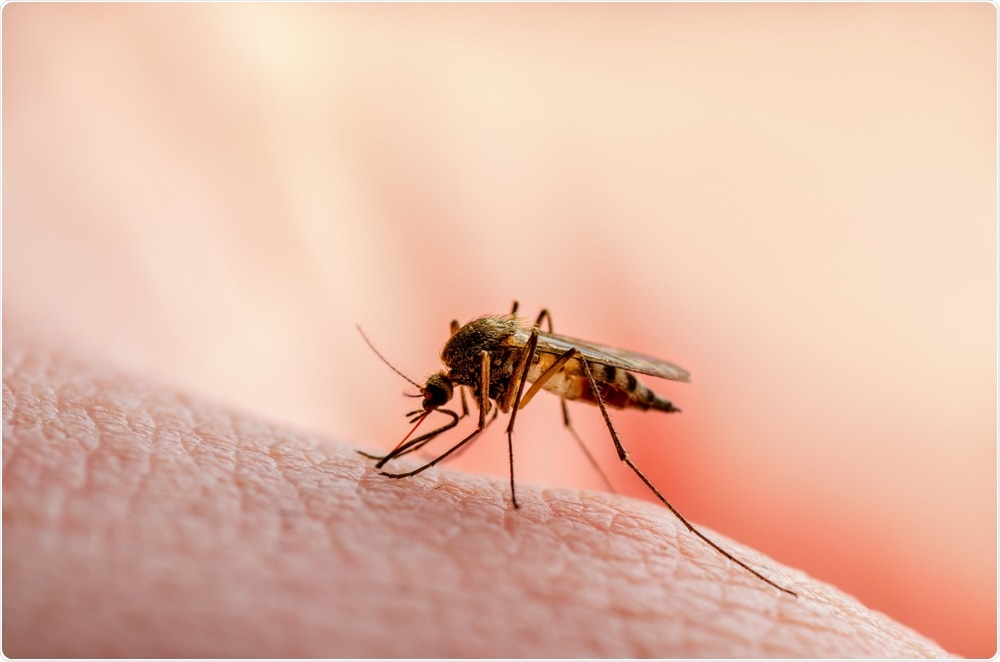A team of researchers at Yale University and collaborators in Brazil have said a field experiment that released genetically modified mosquitoes to control natural populations of the insect may have had unintended consequences.
According to a genetic analysis the team conducted in the area, the modified mosquitoes have bred with wild mosquitoes and produced viable, hybrid insects.
“The claim was that genes from the release strain would not get into the general population because offspring would die,” says study author Jeffrey Powell, a professor of ecology and evolutionary biology at Yale University. “That obviously was not what happened.”
 nechaevkon | Shutterstock
nechaevkon | Shutterstock
For ten years, the biotech company Oxitec has been testing whether genetically modified (GM) mosquitoes can suppress natural populations of the pest, which carry and spread devastating viruses such as dengue and Zika.
Between 2013 and 2015, Oxitec released the GM insects in the city of Jacobina in Bahia, Brazil. The intention was for the GM males to mate with wildtype females and transfer a gene that kills their offspring before they get a chance to breed.
Some GM progeny survived and made it to maturity
As recently reported in the journal Scientific Reports, an analysis by Powell and colleagues of mosquitoes in the area before, during and after the GM insects suggested that some of the offspring of the GM mosquitoes survived and produced offspring that made it to maturity.
Consequently, some wildtype mosquitoes inherited some pieces of the modified genome, reveals the team.
The researchers, who are not affiliated with Oxitec, created a genetic panel that could distinguish wild mosquitoes from the GM insects and found that two years after the release, progeny existed that was a combination of both the wild and GM (or OX513A) lineages.
The team writes:
Depending on the sample and criterion used to define unambiguous introgression, from about 10% to 60% of all individuals have some OX513A genome."
“Something unanticipated happened”
Both the study authors and Oxitec agree that the findings do not provide any evidence that the hybrid insects pose any more risk to people that the wild mosquitoes or that they will mean Oxitec’s plan does not work.
However, “the important thing is something unanticipated happened,” says Powell. “When people develop transgenic lines or anything to release, almost all of their information comes from laboratory studies. … Things don’t always work out the way you expect.”
The study authors do suggest that the genetic modification could have made the mosquito population “more robust” and therefore more insecticide-resistant or more able to spread disease. These implications, which have triggered anti-GM news reports, have meant Oxitec has taken issue with what it is calling a misleading and speculative paper.
“We’re not surprised by the results, but what we are surprised by are the speculations that the authors have made,” says Nathan Rose, head of scientific and regulatory affairs at Oxitec.
He says the company has now asked Nature Research, which publishes Scientific Reports, to “address the range of misleading and speculative statements” made in the study. An editor’s note has now been added to the paper saying that its conclusions “are subject to criticisms that are being considered by editors.”
Even before Oxitec began the releases, the company new the gene insertion was not inevitably lethal. The company had already conducted tests showing that once GM males and wild females mated, around 3% of the offspring survived and Rose says “we’ve been very clear about that.”
What had been less clear was whether the offspring, which were often unhealthy in the lab, would themselves be able to reproduce, says Powell.
To test this, Powell and his collaborators collected mosquitoes from several neighborhoods in Jacobina before, during and after the 2013 to 2015 releases of approximately 450,00 GM males in Jacobina.
The strategy had successfully reduced the mosquito population in the area by 90%, but within the remaining population, Powell and team estimated that between 5% and 60% had some DNA from the modified strain in their genome – in one case 13% of the genome had been passed on.
A number of things are “really overhyped and kind of irresponsible about the paper”
An entomologist at Pennsylvania State University, Jason Rasgon, who has no financial ties to Oxitec, says the finding is important, but that he thinks a number of things are “really overhyped and kind of irresponsible about the paper.”
Similar to Oxitec’s response, Rasgon also takes issue with the paper’s assertion that the mixing of the genomes “likely” made the population more robust. Powell and team did not test whether the hybrids were more resistant to pesticides or more likely to spread disease. Neither was true of the Oxitec mosquitoes themselves, says Rose.
For now, Oxitec has said it is “currently in the process of working with the Nature Research publishers to remove or substantially correct this article, which was found to contain numerous false, speculative and unsubstantiated claims and statements about Oxitec’s mosquito technology.”
Journal reference:
Evans, B. R., et al. (2019). Transgenic Aedes aegypti Mosquitoes Transfer Genes into a Natural Population. Scientific Reports. nature.com/articles/s41598-019-49660-6.